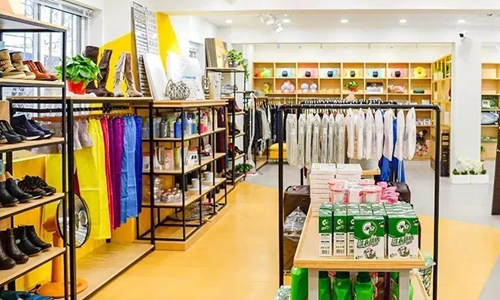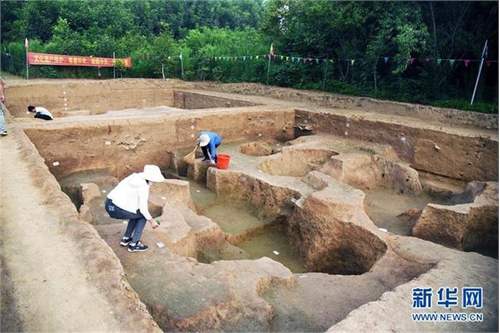ARTS / CULTURE & LEISURE
Treasure hunting in thrift shops becoming new lifestyle trend in China

A charity shop in Shanghai Photo: Sina Weibo
Posting shopping experiences in thrift shops has recently become a new trend on China's lifestyle-oriented online platforms such as Little Red Book and Dazhong Dianping. This growing "thrift culture" in China has not been limited to those who like a bargain, it has also turned into a lifestyle choice by an increasing number of young Chinese consumers who value personal style and saving money over the extravagance of the consumer controversy.Such online posts from netizens are diverse in contents with some showing the results of them undertaking a limited spending challenge and others posting their expertise in shopping in particular sections of these shops. Many of them just treat the shopping experience a treasure hunt that allows them to create their own unique fashion style.
"This shirt is from the men's section. I like that it says "Beijing marathon," not that I like to run, but just because wearing something so random makes me feel like a fun and 'unexpected' person. I like this feeling," Zhang Hui, a 24-year-old man, told to the Global Times on Tuesday.
The trend is not only followed by people like Hui who see such thrift shops as a means to enhance their outer character, others treat the decision to shop there as an inner reflection on challenging social issues.
"I stopped buying new clothes in 2011 while I was doing my film project in the UK on how high street fashion triggers but also ignores environmental and human rights issues. At that time, I thought to myself that if China didn't have these kinds of charity shops when I got back, I would just have to stick with the old clothes I had, but now, I see more and more charity shops opening here and am glad to see people actually like to go to them," Siding, an "anti-fashion" photographer, told the Global Times on Tuesday.
"The first such shop in Beijing I think started in 2008. It was originally from Western culture, but the purpose is the same in China, which tries to establish mutual care between individuals and society. It normally receives donations from individuals, and also donates and distributes such goods to society sections, for example to the disabled and vulnerable," Li, a former thrift shop worker in Beijing, told the Global Times on Tuesday.
"I've donated to thrift shops for more than three years. To be honest, at the very beginning it was more for selfish reasons, throwing everything I didn't need in a bag - even if something was quite broken - felt very fresh. But now, I have a strong sense of the difference between "abandoning" something and "donating" it and have learned to be more careful to give items that people will use again," Ran, a thrift shop donator, said in an interview with the Global Times on Tuesday.
While the idea of shopping in thrift stores is becoming increasing popular in China, the "second-hand" nature of such commodities still concerns some netizens.
"I found that second-hand clothing and shoes are unacceptable because they remind me of the time when there were flea markets in the city that sold things that were stolen or some have stains that look like blood to me," Yao, a 58-year-old woman in Chongqing, told the Global Times on Tuesday.
"Second-hand items are more popular with young people indeed compared to older people, and we often see some vloggers come to the shop to film. These offline shops are becoming a trend on the internet," a thrift shop volunteer in Shanghai told the Global Times on Tuesday.



